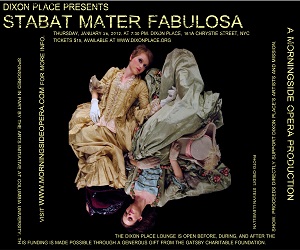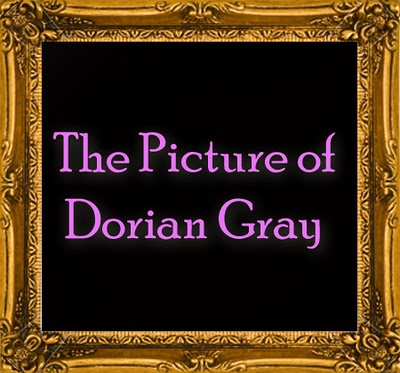
Planet Connections Theatre Festivity is New York City’s premiere eco-friendly theatre festival, connecting artists and audiences with diverse dynamic charitable organizations. The Planet Connections experience entertains, enlightens and informs.
The Happiest Medium (proud sponsors of The Planet Connections Festival), continues the Q&A which we’ll be running every day until the festival begins on June 3rd. We’ll highlight 2 different shows each day, so make sure to come back and check daily!
Today we ask one question each of Glory Bowen, director and adaptor of The Picture of Dorian Gray and Duncan Pflaster, writer of The Thyme of the Season. One is an adaptation of a classic story written by Oscar Wilde, the other is a sequel to Shakespeare’s A Midsummer Night’s Dream. Let’s see what new twists were brought to these old classics . . .
The Picture of Dorian Gray
answers by Glory Bowen
Here’s Antonio’s question -
If you would have to single out a quality between dialogue, plot or character, which one is the strongest in your play/piece, and why?
Probably the plot – although there’s definitely something to be said for Oscar Wilde’s dialogue and characters.
Here’s Karen’s question -
What has been the most surprising or unexpected thing that’s happened during this play? Did that wind up taking the play in a new direction?
Nothing that surprising has really occurred …. I mean I’m completely surprised at myself but I don’t think anyone else is really. So I would have to say that there really is nothing surprising. Oh, except for that time we got those water balloons and threw them at the actors rehearsing for Cake. But really – they were surprised – we weren’t.
Here’s Anne’s question -
What do you think is the central theme and reason this play was conceived?
There are several central themes: The value society places on youth and beauty; the purpose of art, the superficial nature of society, the search for pleasure above happiness, and the isolation and pitfalls that come from an extremities such as being extremely good looking, wealthy, or talented/intelligent.
Here’s Stephen’s Question -
Why should the audience (we) go to your play? What will the audience learn about the “human condition” by going to your play?
Oscar Wilde, who wrote the novel The Picture of Dorian Gray, was arrested, tried, and convicted for his sexual preference; he was a homosexual. Besides being one of history’s great playwrights, he was also one of the first activists who made achievements for the homosexual community – even though those achievements took a toll on his personal life and on his art. In his honor, we have selected an organization that continues the fight that Mr. Wilde began.
At his trial, under cross examination Wilde was at first hesitant, then spoke eloquently:
Charles Gill (prosecuting): What is “the love that dare not speak its name?”
Wilde: “The love that dare not speak its name” in this century is such a great affection of an elder for a younger man as there was between David and Jonathan, such as Plato made the very basis of his philosophy, and such as you find in the sonnets of Michelangelo and Shakespeare. It is that deep spiritual affection that is as pure as it is perfect. It dictates and pervades great works of art, like those of Shakespeare and Michelangelo, and those two letters of mine, such as they are. It is in this century misunderstood, so much misunderstood that it may be described as “the love that dare not speak its name,” and on that account of it I am placed where I am now. It is beautiful, it is fine, it is the noblest form of affection. There is nothing unnatural about it. It is intellectual, and it repeatedly exists between an older and a younger man, when the older man has intellect, and the younger man has all the joy, hope, and glamour of life before him. That it should be so, the world does not understand. The world mocks at it, and sometimes puts one in the pillory for it.”
We hope you will join us for the LGBT night of Planet Connections Theatre Festivity which will be held at the Bleecker Street Theater in honor of Oscar Wilde, benefiting GLAAD.
The Gay & Lesbian Alliance Against Defamation (GLAAD) amplifies the voice of the LGBT community by empowering real people to share their stories, holding the media accountable for the words and images they present, and helping grassroots organizations communicate effectively. By ensuring that the stories of LGBT people are heard through the media, GLAAD promotes understanding, increases acceptance, and advances equality
Here’s Sarah’s Question -
What is your favorite line from the play?
“It is not good for ones morals to see bad acting.”
Here’s Diánna’s Question -
What about this play do you feel most drawn to personally, and because of that, what message do you hope the audience walks away with?
The play is about love – and all of its beauty and tragic delusions. But, it’s also about the value society places on youth and appearance. The tragedy of Dorian Gray of course is that he was a very loved person – perhaps he wasn’t loved for the right reasons exactly – but he was loved. Yet, he never appreciated that or understood it exactly. Perhaps we all could learn to appreciate the generosity of others in our own individual lives – and recognize it.
* * *

The Thyme of the Season
answers by Duncan Pflaster
Here’s Antonio’s question -
If you would have to single out a quality between dialogue, plot or character, which one is the strongest in your play/piece, and why?
Though The Thyme of the Season has a more structured, fairy-tale like plot than most of my plays, I’m going to have to go with dialogue; a lot of it is in verse, which gives a wonderfully stylized, magical feel to everything.
Here’s Karen’s question -
What has been the most surprising or unexpected thing that’s happened during this play? Did that wind up taking the play in a new direction?
A number of the performers I’d intended to use (who appeared in a reading of the play I did with Katherine and Friends a couple of years ago) had to drop out; one lives far away now, one was having money troubles, one has a slipped disc, and one showed up to his first rehearsal after having been hit by a car and fracturing his arm the night before. So re-castings (of other great performers) have brought new interpretations of the characters.
Here’s Anne’s question -
What do you think is the central theme and reason this play was conceived?
The play is a sequel to A Midsummer Night’s Dream, and was conceived (by myself and actress Clara Barton Green, who plays Puck) as a deconstruction and response to that play (much like the second act of The Fantasticks or Into the Woods). The theme is that happy endings fall apart if you don’t work at them, and that living an authentic real life is better than a false enchanted one.
Here’s Stephen’s Question -
Why should the audience (we) go to your play? What will the audience learn about the “human condition” by going to your play?
Because it’s awesome. uh…. “People are basically good at heart”?
Here’s Sarah’s Question -
What is your favorite line from the play?
I have it, Helen! We’ll disguise ourselves!
O, Bottom, you do have the actor’s gift:
A closet full of cast-off doublets, used,
No doubt, for some great tyrant, or perhaps
A lover, that did tread the boards of a
Noble stage, with you as their avatar?
Here’s Diánna’s Question -
What about this play do you feel most drawn to personally, and because of that, what message do you hope the audience walks away with?
I wrote it, so I’m drawn to it all; there’s a little part of me in all the characters. I’m not really into messages, but I guess “live your life sincerely”.




{ 0 comments… add one now }
{ 2 trackbacks }